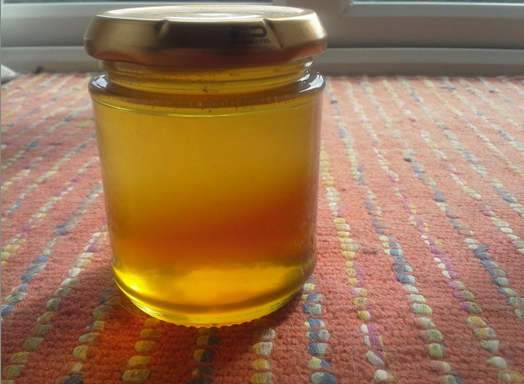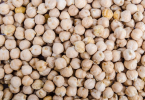Dogs are a big part of our lives. Whoever owns a dog knows how true this affirmation actually is. Taking the time to teach your pet basic commands, making time for walks, and paying attention to everything he eats, it’s just a small part of what the term “care” actually involves. For example, as a dog owner, you have probably wondered: can dogs eat honey? Let us find the answer to this question in the following paragraphs.
Can Dogs Eat Honey?
Honey has been one of the most popular ingredients in the world for centuries. We know that it is completely natural and extremely good for our health, but is it good for dogs too?
Adult dogs can eat honey but it is not recommended for puppies. Why is honey possibly dangerous for young creatures? It’s because it could include harmful botulism spores that have the ability to negatively affect the dogs who are not mature and older. Usually, puppies don’t have the proper immune system to tolerate it. Do not get me wrong, you may feed honey to your furry pet from time to time, but you should always remember the risks and better yet, understand them thoroughly.
Raw honey is preferred over regular honey. If you are unfamiliar with the term of “raw honey”, then you should know that this type of honey has not been pasteurized, heated or processed in any manner. It is a pure and unaltered ingredient, which could be used to naturally sweeten your DIY dog treats. Moreover, it acts as a natural remedy when health issues might interfere with your dog’s normal body responses.
How Much Honey Can Dogs Eat?
The truth is that just like with any other food, it is all about moderation. Honey should be given in moderated portions due to the fact that it is high in sugar and calories.
If you give your dog too much honey, he may experience diarrhea and upset stomach.
However, don’t give your adult dog more than 1 teaspoon a day. A large dog may have 1 tablespoon a day. More than that may cause diarrhea and obesity.
Remember that when it comes to puppies, any amount of honey may harm them, as they do not have an immune system that’s fully developed.
Benefits of Honey to Dogs
Important Nutrients
Honey contains many important nutrients such as pollen grains, enzymes, minerals, sugars (fructose and glucose), potassium, iron, magnesium, sodium chloride, sulfur and phosphate. It’s also rich in vitamins B1, B2, B3, B5, B6, and C). Honey also contains numerous proteins and hormones.
A lot of human food cannot be digested by dogs. However, honey is different. It is already predigested by the bees. That means, honey is easily digested by your dog. Honey helps to prevent bad bacteria in your dog’s digestive tract, too.
Improves Fur and Skin
Just like people, your pet can benefit from honey’s moisturization properties. Honey can improve your dog’s fur and skin.
Improves Energy Levels
It also improves your pet’s energy level. Raw honey has natural sugars that are easily broken down by your dog’s body, giving him a boost of energy. Honey will act immediately and what’s even best about it, most dogs really like honey.
If you have a dog who absolutely dislikes the taste of it, you can put a teaspoonful of honey into his drinking water. Moreover, you can buy these delicious crunchy [easyazon_link identifier=”B0006NEHMS” locale=”US” tag=”frtp-20″]peanuts and honey treats for dogs[/easyazon_link].
Improves Calcium Absorption
Studies have shows that honey can improve your pet’s calcium absorption from milk and any other form of calcium when the two are consumed together.
What Kind of Honey is Best for Dogs?
Manuka honey is the most beneficial honey for dogs (and humans). Studies have shown that it has the most medicinal properties than any other honey. Manuka honey’s nutritional content is up to 4 times more than normal flower honey’s. Manuka honey contains notably higher level of enzymes than other types of honey. These enzymes produce a natural hydrogen peroxide which works as an antibacterial agent.
Manuka honey is labeled with UMF (unique Manuka factor). This is a globally recognized standard measuring the antibacterial content of said honey. UMF refers that the Manuka honey sold is of a medicinal quality. Anything from UMF 10 – UMF 15 is a good quality and UMF more than 16 is considered superior quality. Rating of UMF 20+ is equal in strength to a 20% solution of phenol.
Here is the UMF breakdown to help you choose better:
0-4 Non-therapeutic
4-9 Maintenance level with regular honey health benefits
10-14 Helps with bacterial balance and natural healing
15+ High levels of phenols which are immensely therapeutic. Although, it’s not recommended to take more than 1 tbsp at a time.
However, if you can’t find Manuka honey, any type of raw honey is good too. Manuka honey comes from New Zealand and is made from the nectar of flowers from the medicinal Manuka bush.
Manuka honey or any other raw honey can be a nutritious treat for your pet too. You can mix a little honey with blueberries or just let your pooch lick it off your spoon.
Honey that is highly pasteurized (heat treated and filtered) has less benefits and is not recommended. It usually looks thin, clear, smooth, and is commonly in bear shaped plastic bottles.
Does Your Dog Have Allergies?
If you have a dog that suffers from allergies, then a spoonful of honey could alleviate the burden. Raw honey contains some pollen which will help your dog to get used to the pollinated air.
However, if your dog’s allergy problems turn out to be serious and they keep coming back, you should consider taking him to the vet as soon as possible. Talk to the vet about your dog’s health problems to get an accurate diagnosis and treatment. Keep in mind that not all allergies can be handled with honey.
Also, if a pet is allergic to bee stings then he may experience allergic reactions to honey itself. In rare cases, honey can cause oral ulcers and skin lesions . If you start giving honey to your dog, always disclose this to the vet. Consulting with your dog’s veterinarian is a smart thing to do before using honey medicinally.
Check out this video by Dr. Jones that explains more about how to treat dog allergies with honey:
Is Your Dog Having Digestive Problems?
The truth is that everyone encounters some digestion troubles throughout their lifetime. This also stands for your dog. A great way to solve them is to give him some raw honey and not jump straight to the medicine bottle. Note: drugs meant for humans are harmful for dog’s health.
Instead, raw honey contains some important enzymes that will help your dog’s stomach to digest the food much better and more efficiently. And it comes with almost no side effects.
What Other Conditions Can You Treat With Honey?
There are various different uses for honey. Your pet doesn’t just have to eat it to get the honey’s benefits.
Other uses of honey:
Honey as a Shampoo For Dogs
Honey has been used in shampoos to nourish the skin, heal infections, and keep the insects away.
Treating Infections, Cuts, and Wounds
If your pet hurts himself with a physical activity or other injury, you can apply honey on the wound topically.
Honey has a capability to heal cuts and wounds in various ways:
- Honey will seal the cut or wound from outside contaminants.
- Honey contains a mild acid. Most bacteria is not able to grow well in that.
- Honey has has a low water content and bacteria won’t like that either.
- Honey will dry up the wound and the high sugar content dehydrates bacteria.
- Honey will produce hydrogen peroxide which can kill the bacteria.
- Honey contains antibacterial properties which helps to heal the infection.
- Honey can speed up the growth of various body tissues. It helps form new cells, collagen, and blood vessels.
- Honey will seal in the proteins and good tissue enzymes that promote healing.
- Honey will provide nutrition to the tissues.
- Honey will reduce swelling and inflammation in a way we can’t explain yet.
However, processed honey generally does not have any healing properties. Always, opt for raw honey or Manuka honey. Processed honey may be easier to apply since it’s thin and watery, however raw form of honey is the one you need to use. Moreover, a processed grocery store type honey is often made using high fructose corn syrup, which is more likely to increase infections and shouldn’t be used to treat your dog cuts or wounds.
Most likely the main obstacle you may face is preventing your dog to lick the honey off the wound. It can also leave a sticky mess on your carpets, furniture, and other places your dog hangs out. To prevent the mess in the house, you can apply honey outside when you take your dog for a long walk etc. You may also need to apply a suitable dressing to prevent licking from happening. However, this can be tricky depending on where your pet’s wound is.
Even if the wound is in a place your pooch is not able to reach it, make sure that any other of your pets can’t get get in contact with it either. Your dog won’t heal if another pet has come and licked it off.
Kennel Cough
Manuka honey is useful for treating kennel cough in dogs. It will alleviate many of your dog’s symptoms. Depending on your dog’s size, you can give 1/2 – 1 tsp. to your pooch internally couple times a day.
How To Preserve Honey
Many people may wonder what is the correct way to store and preserve honey. Storing honey is not actually a complicated process. When done correctly, your pooch can use a jar of honey for a long time.
Some people try to preserve the honey in the refrigerator. Many believe that this is the way to prolong its shelf life. However, that is not entirely the case. Keeping your honey in the refrigerator does not improve its shelf life. Moreover, storing it in the fridge will make the honey thicker than it needs to be.
If you want to preserve your honey to give it to your pooch later, keep it somewhere cool and dry instead. Don’t put it in the refrigerator, you can put it in the pantry or any other place that doesn’t get direct sunlight. Place the honey in a container or a jar and seal it tightly. This way you and your pet can enjoy the honey for many years. Honey will rarely go bad when stored properly.
Conclusion
Dogs can eat honey; it’s just that you need to be very careful with their age and the amount they take in. Raw honey is a natural remedy for many health problems, but if your dog is really young, it is better to take it to the vet instead.
Additionally, always monitor your dog after feeding him new foods, including honey. Start out gradually with small amounts. If you don’t see any adverse effects in 24 hours then you can continue feeding him honey or any other new foods you want to introduce into your pet’s diet.
If your dog is diabetic, it’s recommended to talk to your veterinarian first before feeding him honey since its high sugar content can increase insulin levels Also, it’s advisable to consult with your vet before introducing any new foods into your pup’s diet.
Also, make sure to ONLY use a real honey that is medicinal grade. Highly processed honey should not be applied to cuts and wounds, it can promote the infection instead of healing it.
Have you ever used honey for your dog’s skin infection or any other health condition? What type of honey did you use and did it help? I’d like to hear your thoughts on this subject. Don’t be shy and comment below!
Related articles:
References:
https://www.vetinfo.com/can-you-use-honey-to-treat-allergies-in-dogs.html
http://www.huffingtonpost.com/richard-palmquist-dvm/honey-in-integrative-vete_b_834771.html








Leave a Comment